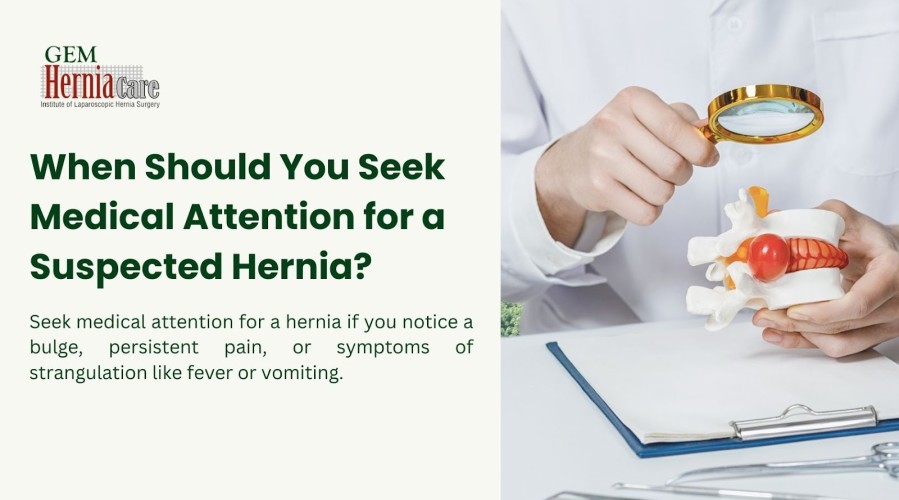Learn effective solutions for digestive problems with expert tips to improve gut health, reduce discomfort, and maintain a healthy digestive system.
When Should You Seek Medical Attention for a Suspected Hernia

When you suspect you have a hernia, it can be unsettling to decide when to see a doctor. This guide will help you understand the signs that require medical attention and the risks of delaying care.
Understanding Hernias
A hernia occurs when an internal part of the body pushes through a weakness in the muscle or surrounding tissue wall. Hernias are most commonly found in the abdomen, but they can also appear in the upper thigh, belly button, and groyne areas. Understanding the types of hernias and their symptoms is crucial in determining the need for medical evaluation.
Recognizing Symptoms of Hernias
It's essential to know the typical symptoms that indicate a hernia might be present:
- Visible Bulge: One of the most noticeable signs of a hernia is a bulge or swelling in the abdomen or groyne area, which may become more apparent when you stand up or exert pressure and may disappear when lying down.
- Pain or Discomfort: Pain at the site of the bulge, especially when lifting, coughing, or during physical activity, is a common indicator of a hernia.
- Other Symptoms: You might also experience a heavy or dragging sensation in your abdomen, signs of bowel obstruction (such as nausea or constipation), or severe pain, which could indicate an emergency situation.
When to Visit a Doctor
While not all hernias are immediately dangerous, knowing when to seek medical advice is vital:
- Persistent or Worsening Pain: If the discomfort persists or worsens, it’s a signal to visit your healthcare provider.
- Increase in Bulge Size: An increase in the size of the bulge is a clear indicator that the hernia is enlarging and needs assessment.
- Symptoms of a Strangulated Hernia: If you experience fever, sudden intense pain, redness, or tenderness around the hernia site, or vomiting, seek immediate medical attention. A strangulated hernia is life-threatening.
Preventive Measures and Early Detection
Importance of Timely Action
Delaying the treatment of a hernia can lead to complications like incarceration or strangulation, where the blood supply to the herniated tissue is cut off. Early detection and preventive measures are key to avoiding severe consequences.
Lifestyle Adjustments
Making simple lifestyle adjustments can reduce the risk of hernias or help manage the symptoms until medical intervention:
- Maintain a Healthy Weight: Excess body weight increases the strain and pressure on your abdominal muscles.
- Proper Lifting Techniques: Always bend from your knees, not your waist, to avoid excessive force on the abdomen.
- High-Fiber Diet: A diet rich in fibre can prevent constipation, reducing the strain during bowel movements.
Scheduling a Consultation
If you're experiencing symptoms of a hernia or have concerns about your risk factors, it’s wise to schedule a consultation with a healthcare professional. At GEM Hospital, we specialise in diagnosing and treating hernias, ensuring personalised care tailored to your specific needs.
Don’t wait for your symptoms to worsen. Contact GEM Hospital to book an appointment with one of our specialists. We’re here to provide the care you need when you need it.
Blogs & Article
Explore current research trends in digestive health, including new treatments, advanced diagnostics, and innovations improving gut health and patient care.
Discover common digestive health myths and the real facts. Learn simple tips to improve gut health and maintain better digestion for a healthier life.


